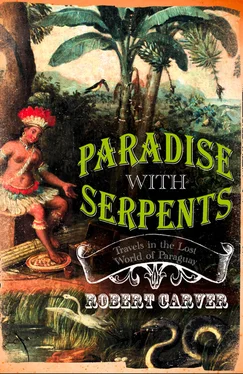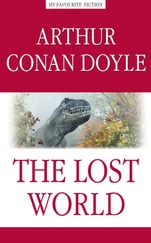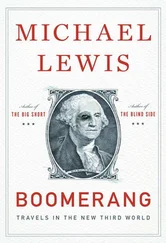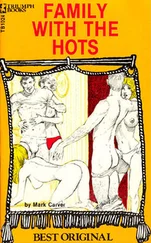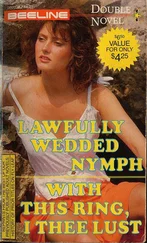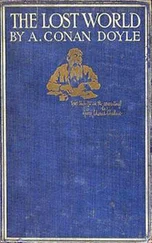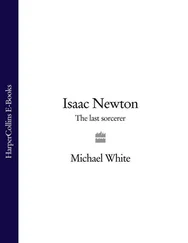1 ...6 7 8 10 11 12 ...20 The son of a First World War German officer, Lt-Col. Koenig was given charge of the body, and he showed it to a delegation of Peronist CGT trades unionists to show that the military had not outraged her body. After this the mummy was hidden in various military barracks: but the people always found out where she was cached, and flowers, candles and votive offerings appeared as if by magic outside each new hiding place. For a long time Colonel Koenig refused to bury the mummy of Eva: some said he had fallen under her spell and used to sit up at nights talking to her as if to a lover, perhaps indeed having fallen in love with this masterwork of the embalmer’s art. Eventually, under mysterious circumstances, the mummy was exhumed and smuggled out of the country to the Vatican by an Argentine priest, Father Rotger, aided by a posse of Italian priests well versed in the black arts of corpse vanishings. Finally, it seems, Koenig had managed to force himself to put to earth the mummy of Eva. ‘I buried her standing because she was male,’ he said later, and this vertical interment was confirmed, for when the mummy was examined in Rome the feet had been destroyed by the weight of the body forcing down on them. It was rumoured that even when buried, Eva had been consulted on various occult matters by the military, and burying her standing up made such consultations easier – the casket only had to be opened at the top, with a sort of cat-flap on hinges. Originally, Eva’s mummy had been exhibited in a glass casket to her adoring public, her hands holding a rosary given her by the Pope; now her body vanished into limbo, finding its way by unknown means into Juan Perón’s hands again in Madrid. After Eva’s death, Juan Perón had made her brother Juancito fly to Switzerland and sign over her numbered accounts into his own, Perón’s name; following this Juancito was conveniently killed in a car accident in Buenos Aires, and his skull ended up being used as a paperweight by Captain Grandi, a military official. Torture and bullfights had both been banned in Argentina in 1813, after the Spanish had been expelled. Perón reintroduced torture, including for women, especially to the genitals. His chief torturer was one Simon Wasserman, a Jewish police official. Like Stroessner, Perón was half-Indian. His mother was so dark that in the racially prejudiced Argentina of the era, she could not be presented in public. Perón had a sense of humour, however; when criticized for living with an actress – Eva was a famous star of the Argentine radio and cinema – he replied, ‘Who do they expect me to sleep with – an actor?’ He was just about to confiscate all the Catholic Church’s property in Argentina, and turn the Cathedral in Buenos Aires into a social centre for trades unionists when he was overthrown. His antecedent – also of part-Indian descent – was Dr Francia, the first dictator of Paraguay after independence from Spain who successfully nationalized Church property, and said, ‘If the Pope cares to come to Paraguay I shall do him no greater honour than to make him my personal confessor.’ Dr Francia got away with it because he had eliminated all opposition from his rivals, and because Paraguay was so far away and so difficult to get to. Many people in Europe still do not know where the place is, including, presumably, the editors of the Penguin History of Latin America , who give the country a complete miss.
Stroessner observed all of Perón’s antics and travails from up the river, and carried many of the murkier aspects of Peronism into practice himself in later years, particularly torture and the cult of the personality. There was even a ‘Don Afredo Polka’, the polka being the national dance, though nothing like a polka anyone in Europe has ever heard. Though the Paraguayans do not like you to say so, Paraguayan history sometimes seems to be a grotesque parody of what has already occurred down south. If the saga of Juan and Eva Perón reads to European eyes as a bizarre excursion into Grand Guignol , something from the pages of a magical realist novel by Gabriel García Márquez, it is worth noting that Márquez himself worked when a young man as a journalist on the Buenos Aires newspaper Clarín during the Perón years. To those who know South America at all, Márquez’s fiction is closer to reality in that continent than many Europeans would credit.
The Paraguayan attitude to their neighbours the Argentines was both complex and paradoxical. They professed to dislike and distrust them, but also, at some level, they admired and aped them. Their slang insult for them was ‘pigskins’, possibly because they were pink-skinned and hairy, like pigs; the Argentines responded by calling the Paraguayans ‘redskins’ and ‘savages’, but there were, of course, many intermarriages between the two peoples. Gabriella’s mother had been an Argentine. ‘ ¡Cuidado! ’ she warned me, her voice rising. ‘Be careful! ¡Chantar! You know this word? To boast, to brag, to bullshit, to bluff- all Argentines are the world’s experts at chantar .’
I mentioned to her later that there was a possibility that an Argentine guide might be willing to take me into the interior in his jeep. ‘He will cheat you,’ she had said, though she didn’t know him, and had heard nothing against him. To be an Argentine was enough. Not that she, nor anyone else I ever met had any enthusiasm for the Paraguayans, either. ‘We overvalue foreigners, particularly Europeans,’ Gabriella had told me. ‘We Paraguayans do not trust each other. This is a land of false smiles and forced laughter. Many foreigners are taken in by this – the happy, smiling Paraguayan, true child of nature, and so on. Bullshit.’ I had already noticed that everyone I spoke to had quite naturally disparaged the local climate, food, people and products. Nothing, it seemed, was as good as in Europe. Yet as an outsider this did not seem at all accurate to me. Few of the people I spoke to had actually been to Europe, and when I told them a few facts about the place they were alarmed, even horrified, and often even openly disbelieving.
The first, most obvious natural advantage Paraguay possessed was its mild sub-tropical climate, in which palms, bananas, oranges, lemons, limes, pineapples, sugar cane and hundreds of other exotic flowers, ferns and orchids flourished. The second was the great sense of space, and the complete absence of any sense of urgency or haste. The country was the size of Germany or California, and had very few people in it, mostly concentrated within a hundred kilometres of the capital; a third of the land area was still virgin forest, the rest agricultural or bush. Away from the towns you could stand on the top of a gentle hill – the country was very flat – and gaze around you 360 degrees and see nothing but forest and fields as far as the eye could see – no people, no houses, no roads. When I told Paraguayans that this was almost impossible in Europe, that we were densely packed, crammed in on top of one another, they were very surprised. When I told them also that in many places the government had the power to tell you what colour you could paint your front door, what type of windows you could or could not have in your house, what sort of tiles you could put on your roof, they were both amazed and indignant. ‘That is tyranny!’ they exclaimed. ‘No Paraguayan would ever accept that. We may have a rotten political class, but they would never dare interfere with our private lives or property like that.’ Many showed me by their expression that they were skeptical about what I told them of European restrictions and regulations – that you could not smoke in buses, trains or many restaurants, that the police photographed your car number plate and sent you a fine later if you went too fast, that the Customs in England could confiscate and crush your car if they felt you were bringing back goods from France they thought you might sell. ‘Don Roberto, with courtesy and respect, of course, you must surely be mistaken – these things are impossible, inconceivable in a great continent of culture like Europe.’ I told them that I lived in such a place of intense restrictions. It was called a Conservation Area, and any changes at all to the outside of my house – paint, door, windows, tiles – had to be approved by the local government council, in order to preserve the character of the area. ‘How can you live like this? It is like being in a prison! No wonder so many poor Europeans come to Paraguay to live! We are free! We do what we want. Your house is not your own – it is the government’s, evidently.’ And moreover, I added, in Britain it was illegal for any private citizen to own a handgun. If you were caught with one you went to prison for three to five years. This was always the straw that broke the camel’s back. I was obviously engaged in high-level chantar . Not to be able to own a pistol to protect your family from criminals? It was like saying to an Englishman that the ownership of handkerchiefs carried a three- to five-year gaol sentence, the two items being about as common as each other repectively in Paraguay and England.
Читать дальше
